Doctor retires after 30 years tirelessly chasing diagnoses
After 30 years of groundbreaking work in infectious diseases, Dr Robert Norton is set to retire, leaving behind a legacy that transformed the fight against some of North Queensland’s most challenging health threats.
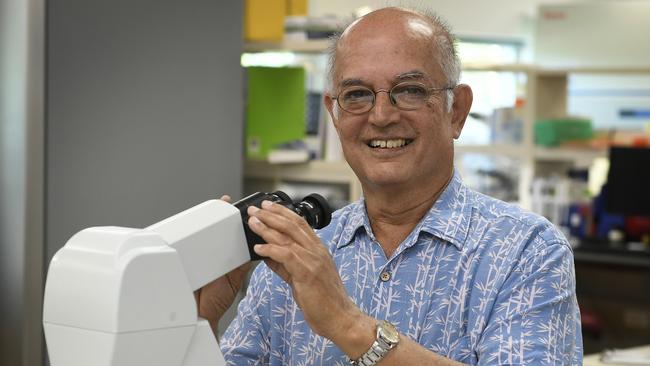
Townsville
Don't miss out on the headlines from Townsville. Followed categories will be added to My News.
Respected microbiologist Robert Norton is hanging up the lab coat after 30 years of making critical, lifesaving diagnoses at Townsville University Hospital.
Mr Norton cut his teeth in medicine working as the sole doctor on Groote Eylandt in The Gulf and the Tiwi Islands.
“Working on the islands you didn’t get a chance to diagnose people; there were no laboratories and if patients were severely unwell, they were sent to major hospitals,” Dr Norton said.
“While that time in my career had taught me great resilience and was exciting, it was not sustainable.”
Soon enough, Dr Norton packed up his stethoscope and followed his patients to Townsville University Hospital where he accepted a job as a clinical microbiologist.
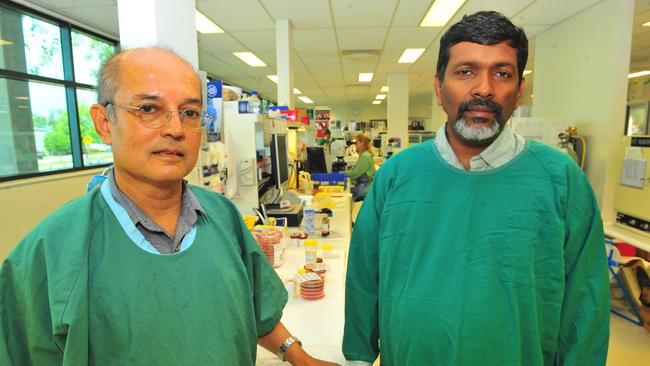
“It was not meant to be forever; however, my family loved it here, so we never left and in 2003 I was appointed to the role of clinical director,” Dr Norton said.
One of the doctor’s main tasks during his long career was tackling melioidosis, a rare bacterial infection endemic to North Queensland’s soil during the wet season.
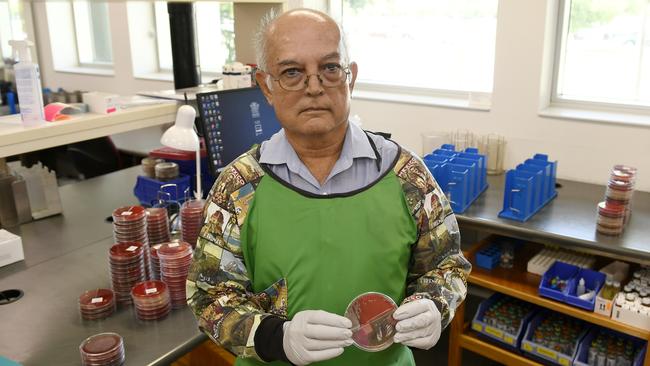
“One of the first cases I ever saw was a six-year-old boy who died which imprinted on me the devastation of this disease,” he said. “We’ve been able to break ground in the identification of the illness, better understand the
susceptibility of certain people and publish research on how to minimise the risk of lab
transmission of melioidosis.”
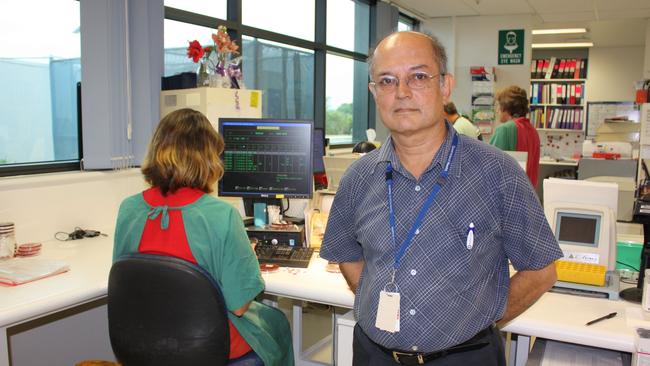
The Townsville pathology laboratory is also a reference laboratory that provides clinical advice on the disease internationally.
Dr Norton said of all his diagnoses, the diagnosis of an extremely rare infection in a one-
year-old boy from a rural property in northwest Queensland in 2015 would stay with him
forever.
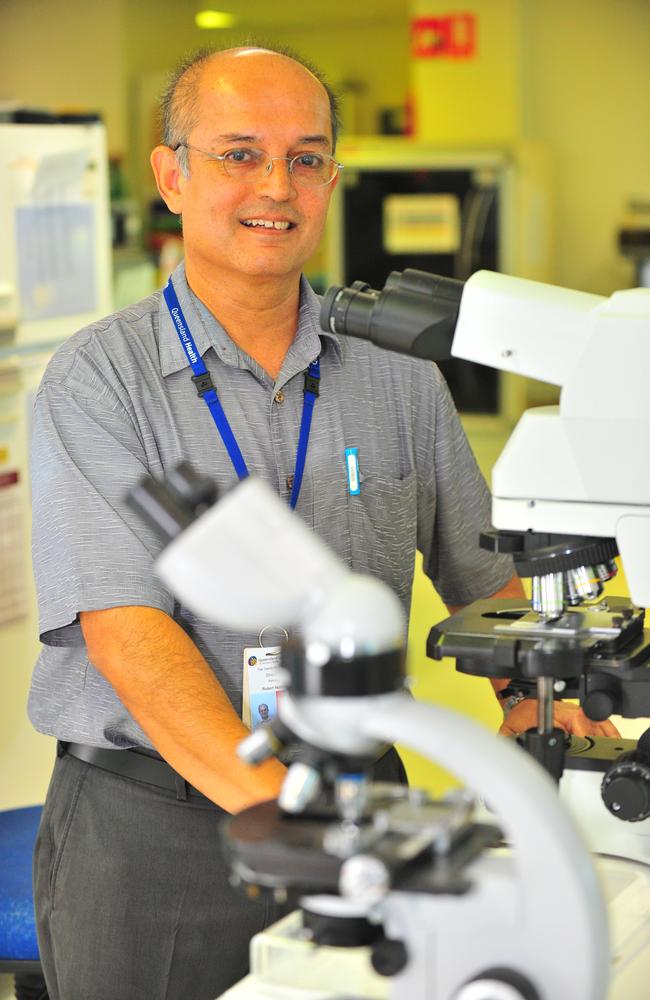
“The infection was Primary Amoebic Meningoencephalitis (PAM) caused by an amoeba
called Naegleria fowleri which is active in warm, untreated water,” he said.
“It enters through the nose and causes severe inflammation and brain destruction, and due
to an underdeveloped sliver of bone in the nose of children separating the outside from the
brain’s surface and allowing the naegleria to pass though, children are more susceptible.
“At the time there had been only 300 cases worldwide and three of those were in children
within a 100-kilometre radius of this case.
“The child died; it was very tragic, and the family was devastated … the diagnosis prompted an education campaign to the properties surrounding the family’s to ensure they had the correct water filters to prevent Naegleria fowleri passing through.”
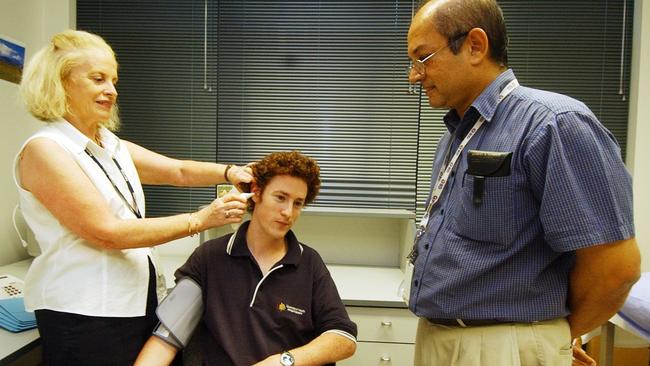
Another big focus through Dr Norton’s career has been rheumatic fever.
“Rheumatic fever is complex and is tied to social factors such as housing,” he said.
“Rheumatic fever is a fundamental problem in Indigenous communities, and I brought that
interest with me from my time on the islands where I really gained an appreciation for how difficult it is to deliver what we take for granted in places like Townsville.”
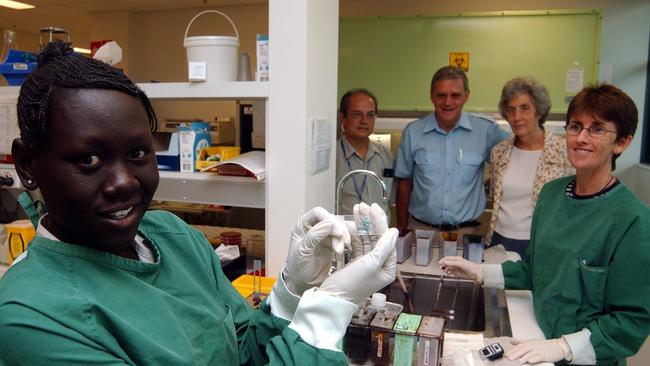
Reflecting on his career, Dr Norton said it's the patients who have kept him here.
I have learnt a lot of medicine from patients,” he said.
“They’ve taught me every step of the way … they’ve allowed me to keep learning, and that is the beauty of medicine.”
Dr Norton said his reason for retiring was his five young grandchildren – and afterwards, perhaps a retired life in Adelaide alongside from “travelling and reading”.
Dr Norton will retire officially on September 25.
More Coverage
Originally published as Doctor retires after 30 years tirelessly chasing diagnoses





